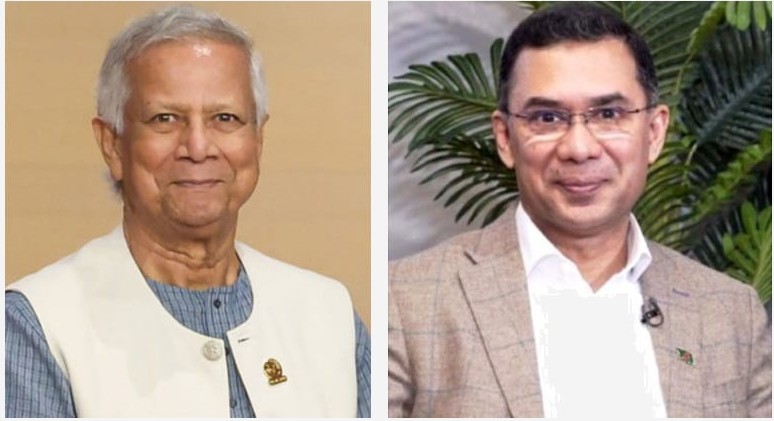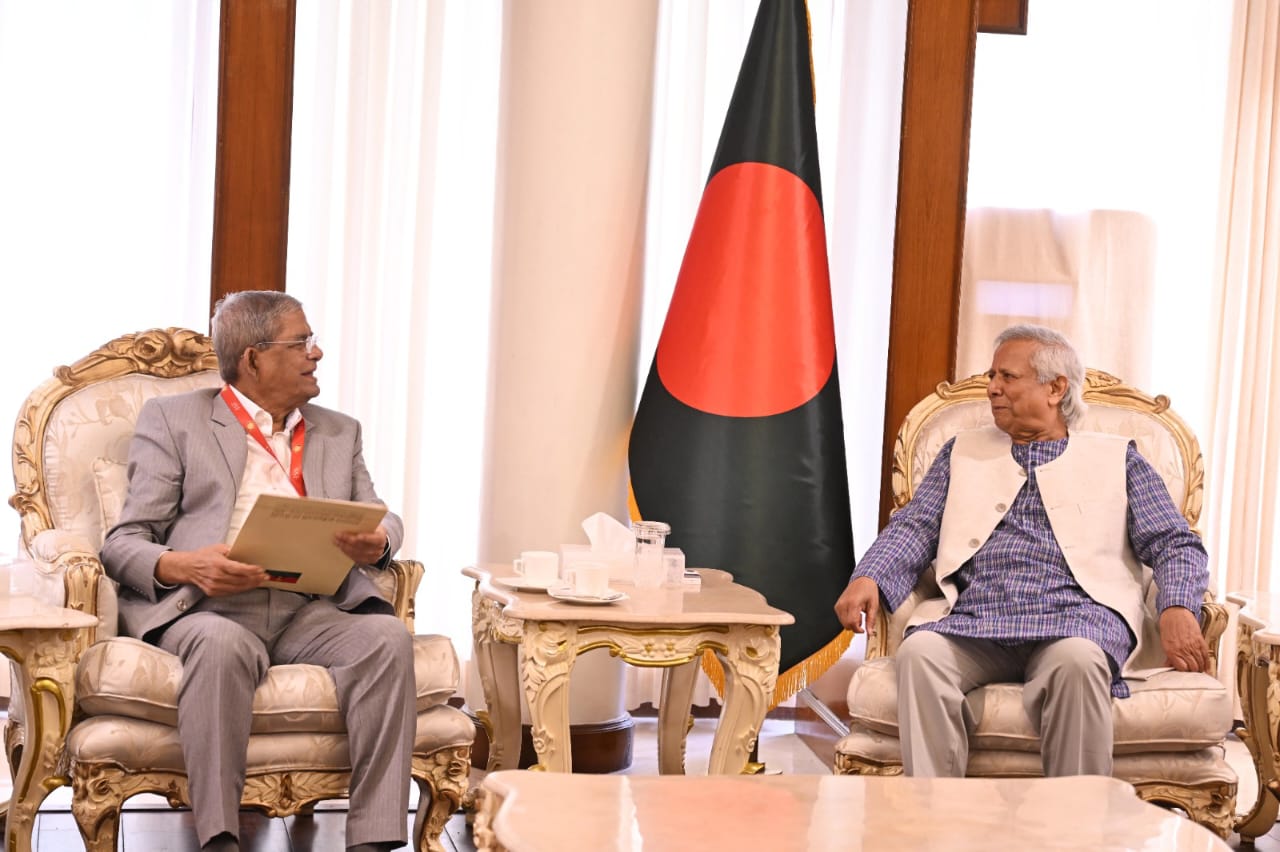Since the fall of the Awami League government in August 2024, Bangladesh has been navigating a complex political transition under an interim administration led by Chief Adviser Muhammad Yunus.
The Bangladesh Nationalist Party (BNP), now the country’s most formidable political force, has been demanding a specific roadmap for parliamentary elections.
The relationship between the BNP and the interim government—characterised by sharp rhetoric, political manoeuvring, and an anticipated meeting between Yunus and BNP acting chairman Tarique Rahman—now stands at a potential turning point.
The interim government emerged following a student-led uprising that ousted former prime minister Sheikh Hasina, leaving a power vacuum and uncertainty.
Charged with overseeing reforms, justice, and elections, Yunus’s administration quickly came under pressure—particularly from the BNP—to prioritise early elections.
For the BNP, led by former prime minister Khaleda Zia and her son Tarique Rahman—exiled in London for over 17 years—the interim period offered a crucial chance to restore democratic rule.
As early as November 2024, BNP leaders voiced frustration over the absence of a clear election timetable. Figures like Iqbal Hasan Mahmud Tuku accused the government of hiding behind reforms, while Standing Committee member Mirza Abbas warned that continued delay risked unrest.
The party’s call for elections by December 2025 found broad support. Standing Committee member Salahuddin Ahmed warned that shifting timelines from a respected figure like Yunus risked undermining his credibility.
By April 2025, the BNP had prepared for demonstrations if a December date was not confirmed. Tensions escalated when Yunus announced elections would be held in the first half April 2026, citing the need to complete reforms and deliver justice to victims of the July uprising.
The BNP criticised the date as unrealistic and politically motivated. Senior Joint Secretary General Ruhul Kabir Rizvi highlighted challenges including extreme weather, Ramadan, and school examinations. Others argued Yunus was acting on advice from a select few, ignoring broader consensus.
The BNP also condemned Yunus’s Eid-ul-Adha address, calling it undignified and rejecting the April timeline. One BNP leader noted that 36 parties had backed a December election, accusing the government of stalling. Some suspected Yunus intended to extend his tenure under the guise of reform.
Yunus, however, remained resolute. In his 6 June Eid address, he defended the reform-first strategy and pledged major progress by Eid-ul-Fitr 2026. His Press Secretary Shafiqul Alam reiterated that the government’s aim was to deliver the most credible election in the country’s history. Although Yunus had previously mentioned a window between December 2025 and June 2026, he stressed that finalising a date required broad consensus.
Beyond electoral issues, Yunus’s reform agenda faced bureaucratic resistance, particularly over restructuring the National Board of Revenue. The National Citizen Party (NCP), composed of student leaders from the July uprising, supported delaying elections until reforms were implemented—positioning themselves opposite the BNP.
In May 2025, tensions deepened when the BNP accused the government of interfering in a court ruling that favoured BNP candidate Ishraque Hossain in the Dhaka South mayoral race. Senior leader Abdul Moyeen Khan warned the public could turn against a once-admired interim government. The party also demanded the removal of advisers accused of political bias.
Despite rising frustration, the BNP opted for restraint. A senior Standing Committee member revealed that Tarique Rahman had instructed leaders to avoid confrontation, warning that unrest could be exploited by “vested quarters.” BNP Chairperson Khaleda Zia reinforced this message, urging the party to remain disciplined and focused on internal organisation.
Advisory Council member Zainul Abedin Farroque confirmed: “We are silent for now on Tarique Rahman’s instruction. He wants us to focus on strengthening the organisation first.”
The cautious approach reflected a recognition of the challenges of mass mobilisation during the monsoon and growing public fatigue.
The announcement of a high-stakes meeting between Yunus and Tarique Rahman, scheduled for 13 June 2025 in London, marks a possible turning point.
Set to take place at the Hotel Dorchester, the meeting has sparked cautious optimism. BNP Secretary General Mirza Fakhrul Islam Alamgir called it a “major political event” with the potential to resolve the impasse, confirming Tarique had full authority to negotiate.
Party insiders expect Tarique to press Yunus to reconsider the April 2026 timeline, citing Ramadan and adverse weather. Salahuddin Ahmed said the broader political situation would also be discussed.
Shafiqul Alam confirmed the meeting would have no fixed agenda, allowing the leaders to discuss the election schedule, reform priorities, and the July Charter. He said the dialogue would send a “positive message” about Yunus’s willingness to engage all key stakeholders.

Political analysts have welcomed the development. Professor Dilara Chowdhury described the meeting as a “moment of political maturity” that could reduce tensions and dispel concerns about Yunus’s long-term intentions.
She suggested that compromise on the election date was not only possible, but likely. Political scientist Al Masud Hasanuzzaman agreed, saying direct engagement could help rebuild trust and facilitate progress.
The timing is critical. Political instability, economic strain, and growing public dissatisfaction have made the situation increasingly volatile. Meanwhile, the interim government’s reform-driven approach—backed by the NCP and Jamaat-e-Islami—continues to prioritise structural change over early elections.
The outcome of the Yunus–Tarique meeting could reshape the country’s political future. A successful dialogue may produce a revised election roadmap and model a path toward inclusive, consensus-based governance. A breakdown, however, could reignite protests and deepen the crisis.
Bangladesh stands at a crossroads. The transition from confrontation to the brink of compromise reflects both the fragility and resilience of its democratic journey. As Mirza Fakhrul said, “This is the right time, right place—it could open a new horizon.”
What unfolds next may define the nation’s political trajectory for years to come.


